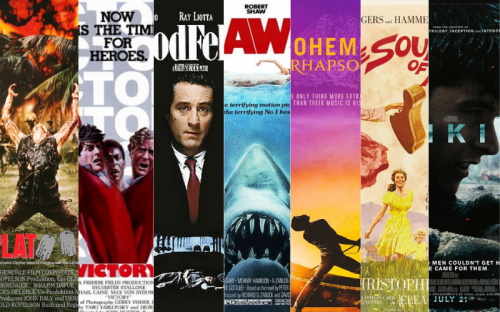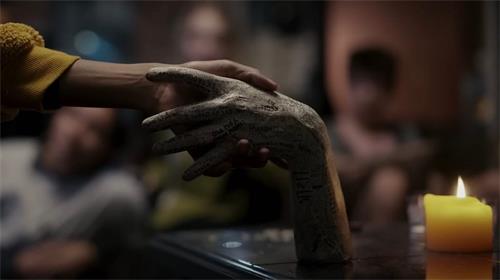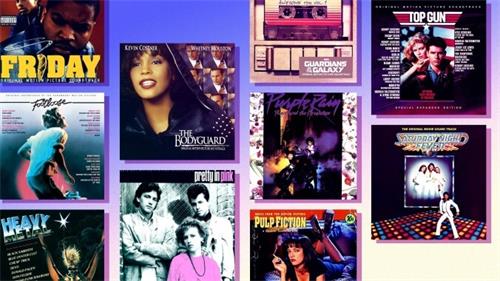
One of the most compelling reasons we’re drawn to true story-based movies is their foundation in reality. Knowing that the events on screen actually happened, or are inspired by real events, adds an emotional weight that fictional tales often lack. True stories provide a sense of connection to the real world—we see characters overcoming challenges, making groundbreaking discoveries, or navigating personal tragedies, and we can’t help but be inspired.
For instance, films like Schindler’s List or Hidden Figures not only entertain but also educate us about significant historical events. These movies bridge the gap between history and storytelling, making the past feel immediate and relevant. Watching these narratives unfold, we’re reminded that real people—not just mythical heroes—have achieved extraordinary things.
Emotional Resonance
True story-based movies often evoke powerful emotions because they deal with genuine human experiences. Whether it’s the triumph of the human spirit, the devastating consequences of poor decisions, or the complexities of relationships, these films resonate because they reflect our own struggles and victories.
Take the movie The Pursuit of Happyness, for example. Will Smith’s portrayal of Chris Gardner’s relentless determination to overcome homelessness and achieve success touches a chord with audiences worldwide. It’s a story of perseverance that’s both heart-wrenching and uplifting, showing us that grit and hope can triumph over adversity.
Relatability and Inspiration
There’s something deeply satisfying about watching ordinary people rise to extraordinary circumstances. True story-based films often highlight the resilience of the human spirit, making them relatable and aspirational. They remind us that greatness isn’t reserved for the fictional superheroes of blockbuster films; it’s something anyone can achieve.
For example, movies like Erin Brockovich showcase how one person’s determination can bring about meaningful change. The story of a single mother who fights against a corporate giant inspires viewers to believe in their own ability to make a difference, no matter how insurmountable the odds might seem.
The Intrigue of Real-Life Drama
Reality often surpasses fiction in terms of complexity and intrigue. True stories are filled with twists and turns that even the most imaginative screenwriter couldn’t dream up. Whether it’s a high-stakes heist, a courtroom drama, or a survival tale, the knowledge that “this actually happened” adds a layer of fascination.
Consider Argo, which chronicles the daring CIA operation to rescue American hostages in Iran. The film’s tension is amplified by the awareness that these events occurred in real life, making the viewing experience all the more thrilling. Similarly, movies like The Social Network delve into the behind-the-scenes drama of creating Facebook, offering a glimpse into the complexities of innovation and ambition.
Historical and Cultural Insight
True story-based movies often serve as a window into different eras, cultures, and perspectives. They can challenge our assumptions and broaden our understanding of the world. By dramatizing real events, these films make history accessible and engaging, encouraging viewers to explore topics they might not have otherwise considered.
For example, 12 Years a Slave provides an unflinching portrayal of the horrors of slavery, while Hotel Rwanda sheds light on the Rwandan genocide. These films aren’t just stories; they’re cultural touchstones that spark conversations about justice, resilience, and humanity.
Catharsis and Reflection
True story-based movies often allow us to process and reflect on societal issues, personal struggles, or collective experiences. They provide a safe space for catharsis, helping us navigate our own emotions through the lens of someone else’s journey.
Films like Spotlight, which uncovers the Catholic Church’s abuse scandal, or United 93, which recounts the events of September 11, 2001, are emotionally challenging but necessary watches. They compel us to confront uncomfortable truths and consider the complexities of human behavior.
A Sense of Accomplishment
There’s a certain satisfaction that comes from learning about a real person or event through a movie. It feels like time well spent—we’re entertained and educated simultaneously. This dual purpose adds value to our viewing experience, making us feel that we’ve gained something meaningful.
The Role of Star Power
Finally, the involvement of well-known actors and directors often elevates true story-based movies. When a talented actor embodies a real-life figure, it brings a level of authenticity and gravitas to the story. For instance, Meryl Streep’s portrayal of Margaret Thatcher in The Iron Lady or Rami Malek’s performance as Freddie Mercury in Bohemian Rhapsody demonstrates how a skilled actor can bring a historical figure to life, making their story resonate with modern audiences.
Conclusion
Our obsession with true story-based movies lies in their ability to connect us to the real world while entertaining and inspiring us. They remind us of the resilience of the human spirit, the complexity of history, and the profound impact one person can make. Whether it’s a tale of survival, innovation, or social change, these films resonate because they reflect our shared humanity. In a way, they’re not just stories about others; they’re stories about us all.





